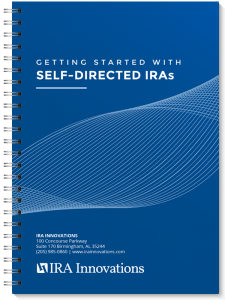While the Internal Revenue Code and the Employee Retirement Income and Security Act (ERISA) do not state permissible retirement plan investment options, they do include what is prohibited and by whom.
However, there are numerous exceptions to prohibited transactions within self-directed IRAs. In addition, individuals and companies may apply for private letter rulings for unique investments not covered by the currently existing exceptions. We suggest you check with your tax advisor for specific advice.
Prohibited Transactions and Self-Dealing in a Self-Directed IRA
Generally, a prohibited transaction involves the improper use of your IRA or Qualified Plan holdings by you or any disqualified person. A disqualified person is any member of your immediate family (except siblings), employers, certain partners, fiduciaries, and other categories specified in the IRS code*.
IRA owners may not borrow money from their IRA, sell property to it, receive unreasonable compensation for managing it, or use it as security for a loan. Direct investment of IRA funds in collectibles, which include works of art, rugs, antiques, metals other than gold and palladium bullion, gems, stamps, coins except certain US minted coins, alcoholic beverages and other tangible personal property as may be defined by the Secretary of the Treasury, is also prohibited.
Qualified Plan members may not transfer Plan income or assets, sell, exchange or lease property, lend money, extend credit, or furnish goods, services or facilities to disqualified persons, or allow fiduciaries to obtain or use the Plan’s income or assets for their own interest.
Outside of these prohibited transactions, your investment capabilities are extensive as long as you comply with the relevant regulations.
For example, an IRA holder may not:
- Borrow money from the individual retirement account
- Sell, exchange or lease property to their IRA
- Receive unreasonable compensation for managing property held by the IRA
- Use the IRA as security for a loan
- Transfer plan income or assets to disqualified persons
- Lend IRA money to disqualified persons
- Extend credit on their IRA to disqualified persons
- Furnish goods, services, or facilities to disqualified persons
- Allow fiduciaries to obtain or use the plan’s income or assets for their own interest
For IRAs or 401(k)s, a disqualified person is:
- The IRA holder and his or her spouse
- The IRA holder’s lineal descendants, ascendants and their spouses
- Investment advisers and managers
- Any corporation, partnership, trust, or estate in which the IRA holder has a 50 percent or greater interest
- Anyone providing services to the IRA, such as the trustee or custodian (See IRS Section 4975 for a complete list of prohibited parties credentials)

